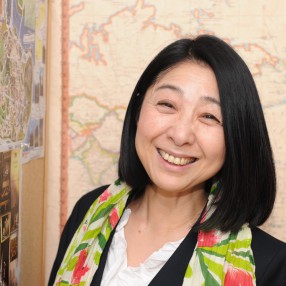
黒澤 文子
クロサワ フミコBasic English 850の勧め1:今を850語で読む<フクシマ@ニューヨークタイムズ>
-
![]()
春分の日、何かを始めるには絶好のお日和の割りには、風が強く、気圧の変化が激しく、自然の力の大きさを感じる一日だった
昨日の上級クラスのReadingに使った教材の一部をあげる。一日違ったら、少し違う表現が出ているけれど、大半同じ。
「飛ぶ教室」の学習方法としては、”がんばらない!””ちょっとだけ、嫌にならない程度やる!” 昨日は重い話題だった。どうしても理解してほしかったので、教材として使いました。
手のとどなかそうな、難しい、わからない単語がたくさんある英語文の読み方の例#1
簡単な方法だけれど、とっても効果的!
1.キーワードを見つけてアンダーラインを引く。ニューヨークタイムズのように一文が長い文は、意味単位を見つけて、そこにアンダーラインを引いて、次の章(Paragraph)に移動する。3,4章を読んだところで、意味内容に見当をつける。
2.声に出して読んでみる。
今日見つけたのは、同じ記者のちょっと違う記事。表現は、昨日読んだものより難しくなっている、、。でも一部、載せておきます。日本語の新聞に大きく報道されていないことも英語で探すと出ていることがあるから。
A version of this article appeared in print on March 20, 2013, on page A4 of the New York edition with the headline: Fukushima Blackout Hints at Plant’s Vulnerability.
http://www.nytimes.com/2013/03/20/world/asia/blackout-halts-cooling-system-at-fukushima-plant.html?_r=0
TOKYO — The stricken Fukushima Daiichi nuclear plant this week experienced its worst power failure since the disaster there in 2011, and though the plant’s operator said all electricity was restored by early Wednesday, the problem underlined its continuing vulnerability.
This week’s partial blackout, which started Monday, halted crucial cooling systems for as long as about 30 hours at four pools where used fuel rods are stored. The company that operates Fukushima Daiichi, the Tokyo Electric Power Company, said the plant had not been in danger because the fuel rods were never close to overheating, a state that could have led to a new, catastrophic release of radioactive materials.
The company said that temperatures in the fuel pools would have remained at safe levels for at least four days.
But the cutoff of the vital systems appeared to support fears by some experts and critics that the plant remains dangerous in part because some vital safety systems were makeshift fixes devised at the height of the nuclear crisis.
Tokyo Electric, also known as Tepco, acknowledged the concern. “Fukushima Daiichi still runs on makeshift equipment, and we are trying to switch to something more permanent and dependable,” a Tepco spokesman, Masayuki Ono, told reporters Tuesday as the company worked to restore the cooling systems.






